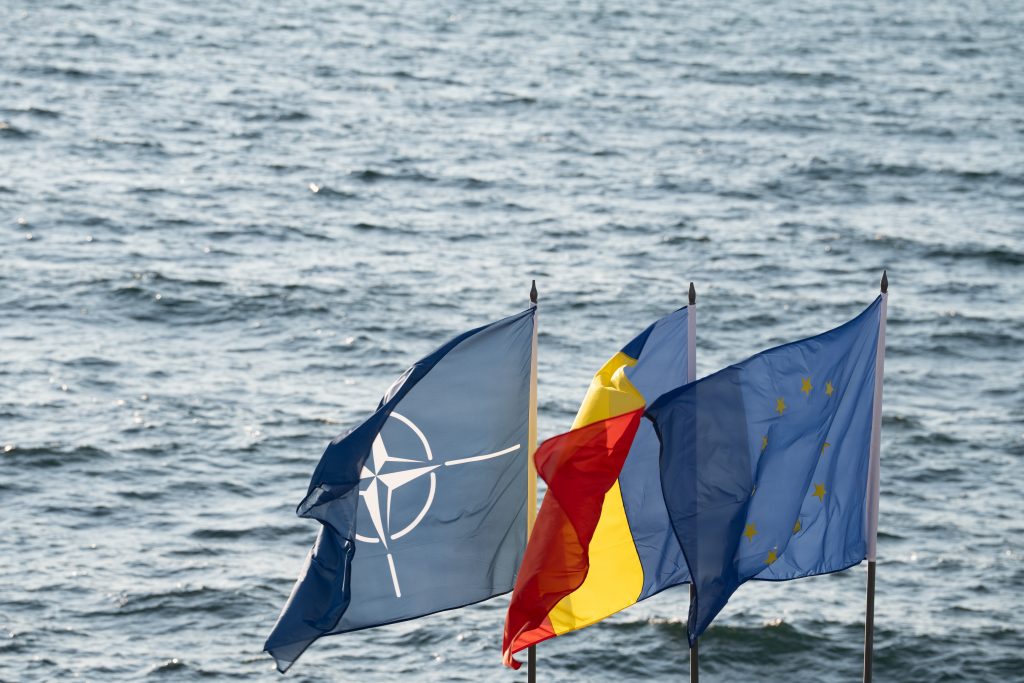By our Eastern Europe correspondent Prof IOAN MIRCEA PAȘCU, former Romanian Defence Minister, Bucharest

(Last update: 29 September 2025)
The Black Sea is a war zone; active military operations are taking place both in the West of the region, against the Ukrainian ports on the Danube, just across from Romania, and in the East, against Sochi, in Russia.
Militarily, the main outcome of the war in the Black Sea has been the annihilation of the mighty Russian Black Sea Fleet, with 40% of its initial potential already destroyed (by a successful combination of drone and missile strikes) and the rest hiding in the Eastern ports of the Black Sea.
Still, Russia’s apparent intention is to completely cut off Ukraine’s access to the Black Sea, concentrating on trying to capture Odessa, a very strategic point, from where both Moldova and the Danube estuary are vulnerable.
“Russia’s apparent intention is to completely cut off Ukraine’s access to the Black Sea.”
Once physically established on the Danube, Russia could then initiate direct communication with its “friends” along the river (thus pressuring Chișinău, Bucharest and Sofia), a development of continental proportions, affecting directly both the EU and NATO.
For the time being though, Russia has shown itself incapable of mounting a beach landing near Odessa (due to a lack of maritime support), and so, apart from bombing the city to the ground, it cannot do more militarily.
Political pressure exerted by Russia
Nevertheless, Russia is still attempting to achieve politically what it cannot achieve militarily. The recent presidential elections in both Moldova and Romania, even if they ultimately didn’t go Moscow’s way, are a clear illustration of this attempt.
However, the fact that Russia has not been successful – for the time being – in its attempt to install Moscow-friendly presidents in both Moldova and Romania does not mean at all that it has renounced its strategy to gain political control over the two countries, as demonstrated by the significant Russian interference in the Moldovan parliamentary elections of 28 September 2025 – fortunately also without success. A “friendly” government in Chișinău – along the Georgian model – would have given Russia an advantage comparable to conquering Odessa, thus complicating the internal political equation in both Romania and Bulgaria.
In the case of Romania, the recent success in preserving the Western orientation of the country against Russia’s pressure needs to be consolidated; the new government is faced with the challenge of striking the right balance between drastic economic and financial measures to cut the current high deficit and avoiding antagonising the population which would provide encouragement for all those who voted against maintaining the country’s pro-Western course in the last presidential elections.
Given the above picture, it seems obvious that the EU – which has recently adopted a welcome and long-overdue Black Sea Strategy – and NATO must continue to lend their unwavering support to the Black Sea states.
 Our Eastern Europe correspondent Professor Ioan Mircea Pașcu teaches international relations at the National University of Political Studies and Public Administration in Bucharest. He was Defence Minister of Romania from 2000-2004 and served as Vice-President of the European Parliament from 2014 to 2019.
Our Eastern Europe correspondent Professor Ioan Mircea Pașcu teaches international relations at the National University of Political Studies and Public Administration in Bucharest. He was Defence Minister of Romania from 2000-2004 and served as Vice-President of the European Parliament from 2014 to 2019.
Write to Ioan: puiu.pascu@gmail.com
© European Union, 2019






